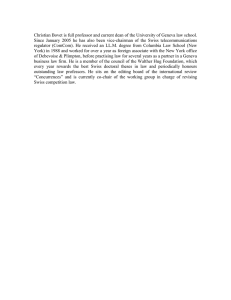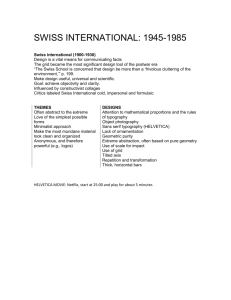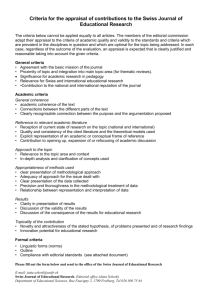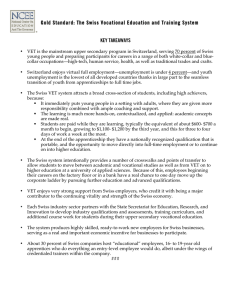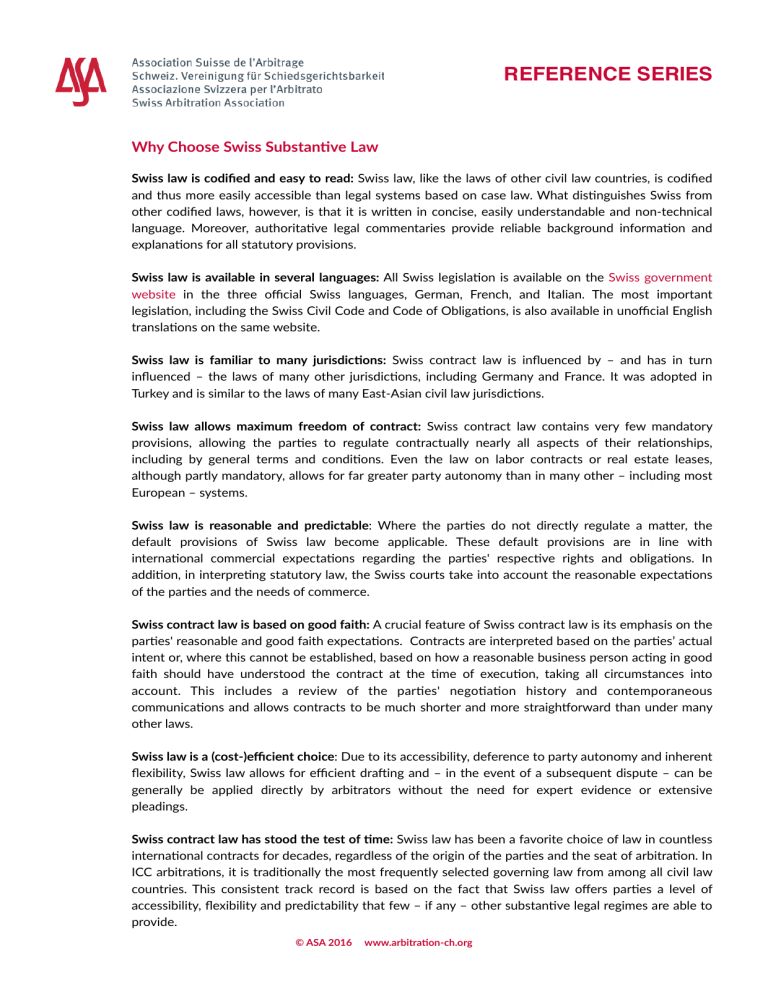
REFERENCE SERIES Why Choose Swiss Substan0ve Law Swiss law is codified and easy to read: Swiss law, like the laws of other civil law countries, is codified and thus more easily accessible than legal systems based on case law. What dis<nguishes Swiss from other codified laws, however, is that it is wri=en in concise, easily understandable and non-technical language. Moreover, authorita<ve legal commentaries provide reliable background informa<on and explana<ons for all statutory provisions. Swiss law is available in several languages: All Swiss legisla<on is available on the Swiss government website in the three official Swiss languages, German, French, and Italian. The most important legisla<on, including the Swiss Civil Code and Code of Obliga<ons, is also available in unofficial English transla<ons on the same website. Swiss law is familiar to many jurisdic0ons: Swiss contract law is influenced by – and has in turn influenced – the laws of many other jurisdic<ons, including Germany and France. It was adopted in Turkey and is similar to the laws of many East-Asian civil law jurisdic<ons. Swiss law allows maximum freedom of contract: Swiss contract law contains very few mandatory provisions, allowing the par<es to regulate contractually nearly all aspects of their rela<onships, including by general terms and condi<ons. Even the law on labor contracts or real estate leases, although partly mandatory, allows for far greater party autonomy than in many other – including most European – systems. Swiss law is reasonable and predictable: Where the par<es do not directly regulate a ma=er, the default provisions of Swiss law become applicable. These default provisions are in line with interna<onal commercial expecta<ons regarding the par<es' respec<ve rights and obliga<ons. In addi<on, in interpre<ng statutory law, the Swiss courts take into account the reasonable expecta<ons of the par<es and the needs of commerce. Swiss contract law is based on good faith: A crucial feature of Swiss contract law is its emphasis on the par<es' reasonable and good faith expecta<ons. Contracts are interpreted based on the par<es’ actual intent or, where this cannot be established, based on how a reasonable business person ac<ng in good faith should have understood the contract at the <me of execu<on, taking all circumstances into account. This includes a review of the par<es' nego<a<on history and contemporaneous communica<ons and allows contracts to be much shorter and more straighQorward than under many other laws. Swiss law is a (cost-)efficient choice: Due to its accessibility, deference to party autonomy and inherent flexibility, Swiss law allows for efficient draSing and – in the event of a subsequent dispute – can be generally be applied directly by arbitrators without the need for expert evidence or extensive pleadings. Swiss contract law has stood the test of 0me: Swiss law has been a favorite choice of law in countless interna<onal contracts for decades, regardless of the origin of the par<es and the seat of arbitra<on. In ICC arbitra<ons, it is tradi<onally the most frequently selected governing law from among all civil law countries. This consistent track record is based on the fact that Swiss law offers par<es a level of accessibility, flexibility and predictability that few – if any – other substan<ve legal regimes are able to provide. © ASA 2016 www.arbitra0on-ch.org
